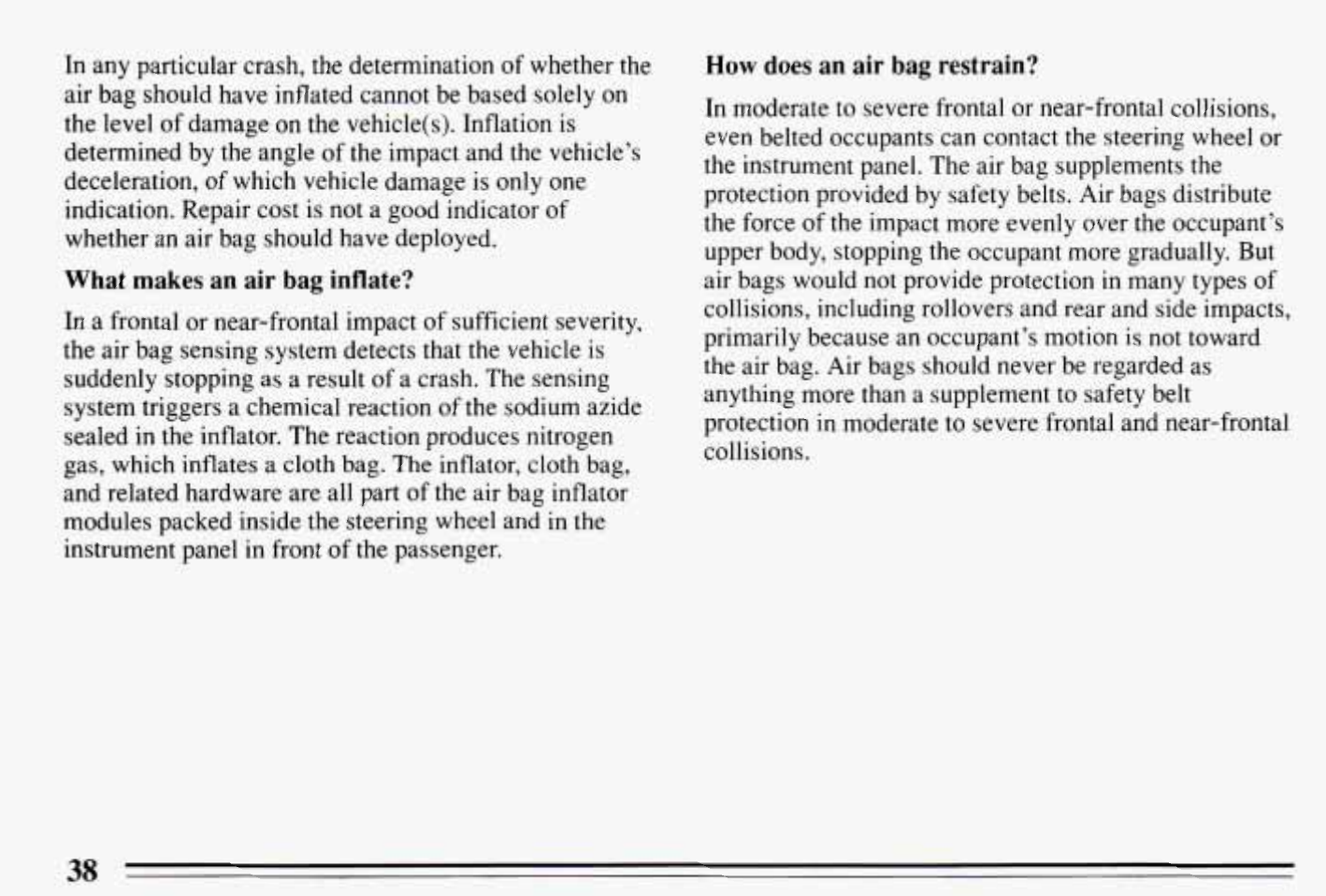Owner's Manual
Table Of Contents
- Table of Contents
- How to Use this Manual
- Seats and Restraint Systems
- Seats and Seat Controls
- Head Restraints
- Safety Belts
- How to Wear Safety Belts Properly
- Lap-Shoulder Belt
- Supplemental Restraint System
- Safety Belt Use During Pregnancy
- Children
- Smaller Children and Babies
- Child Restraints
- Larger Children
- Safety Belt Extender
- Checking Your Restraint System
- Replacing Safety Belts After a Crash
- Features and Controls
- Comfort Controls and Audio Systems
- Your Driving and the Road
- Problems on the Road
- Service and Appearance Care
- Maintenance Schedule
- Customer Assistance Information
- Index

In any particular crash,
the
determination
of
whether the
air bag should have inflated cannot be based solely on
the level of damage on the vehicle(s). Inflation is
determined by the angle
of
the impact and the vehicle’s
deceleration, of which vehicle damage is only one
indication. Repair cost is not a good indicator of
whether an air bag should have deployed.
What makes an air bag inflate?
In
a
frontal or near-frontal impact of sufficient severity,
the air bag sensing system detects that the vehicle
is
suddenly stopping as a result
of
a crash. The sensing
system triggers a chemical reaction of the sodium azide
sealed in the inflator. The reaction produces nitrogen
gas, which inflates a cloth bag. The inflator,
cloth
bag,
and related hardware are all part
of
the air bag inflator
modules packed inside the steering wheel and
in
the
instrument panel
in
front
of
the passenger.
how
does
an air bag restrain?
In moderate
to
severe frontal or near-frontal collisions,
even belted occupants can contact the steering wheel or
the instrument panel. The air bag supplements the
protection provided by safety belts. Air bags distribute
the force of the impact more evenly over the occupant’s
upper body, stopping the occupant more gradually. But
air bags would not provide protection
in
many types
of
collisions, including rollovers and rear and side impacts,
primarily because an occupant’s motion is not toward
the air bag. Air bags should never be regarded as
anything more than a supplement to safety belt
protection
in
moderate to severe frontal and near-frontal
collisions.
38










